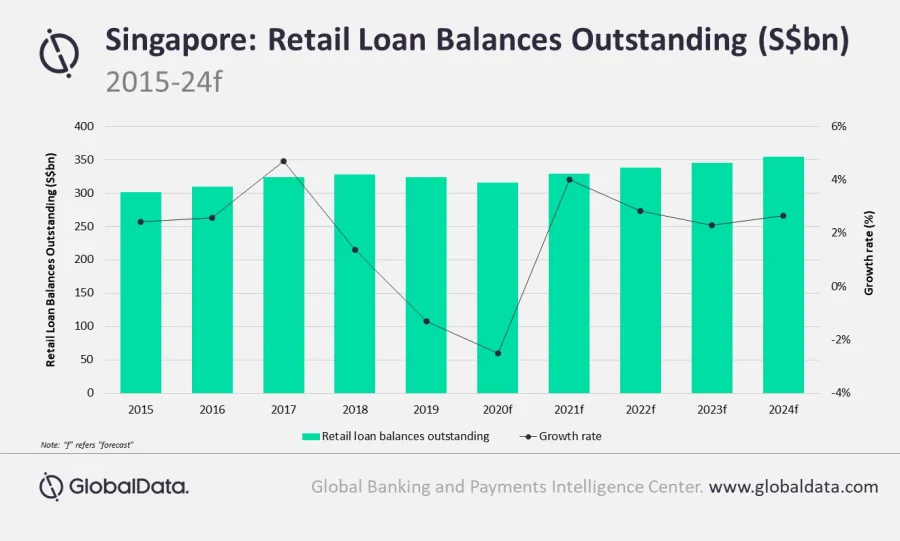
Singapore's retail loans to shrink 2.5% in 2020
New loan applications have declined as consumers are cautious of falling under debt.
Singapore’s retail loans are estimated to shrink by 2.5% to $315.8b (US$234.9b) in 2020 due to the economic fallout resulting from the COVID-19 pandemic, according to the latest report by data and analytics firm GlobalData.
Before the pandemic struck, retail loans were forecasted to grow by 2.2% for the year.
“The COVID-19 outbreak is weighing on Singapore’s banking industry, with banks experiencing low net interest margins, primarily due to low interest rates and rising credit costs,” noted Shivani Gupta, senior banking and payment analyst at GlobalData. “New loan applications have also declined as consumers became more cautious about taking on additional liabilities due to economic uncertainty.”
According to data from SingStat, personal loans declined by 6.2% in Q1 compared to Q4 2019.
Amongst the most affected are banks’ mortgage loan growth, which accounts for the largest share of consumer loans in Singapore with 75% share in 2019. However, strict social distancing rules and the circuit breaker measures because of COVID-19 have affected the country’s real estate market. This in turn resulted in the drop of new mortgage applications.
Further, government measures are currently not sufficient to encourage customers to take any additional new loans in the short term, Gupta said.
But they should be sufficient to help consumers manage existing loans, he added.
Banks have offered flexible repayment options to support its pandemic-stricken borrowers. DBS, for instance, is offering deferred principal payment of car loans monthly installments until December. Similarly, Citi, under its debt consolidation plan, is helping customers reduce monthly repayment amounts by enabling them to extend their loans for up to five years.
The central bank’s announcement of deferral or extension of loan repayments including mortgages until December will also provide some relief to SMEs and individuals affected by the COVID-19 outbreak.
Credit card holders also received aid from the central bank, which on March allowed credit card holders to convert their outstanding balances to term loans at a lower rate of interest, capped at 8%.






![Lorem Ipsum [ABF 1]](https://cmg-qa.s3.ap-southeast-1.amazonaws.com/s3fs-public/styles/exclusive_featured_article/public/2025-03/a_hand_pointing_to_a_futuristic_technology_5b87c9d0e3_1.png.webp?itok=2w0y1WhS)


![Cross Domain [Manu + SBR + ABF + ABR + FMCG + HBR + ]](https://cmg-qa.s3.ap-southeast-1.amazonaws.com/s3fs-public/styles/exclusive_featured_article/public/2025-01/earth-3537401_1920_4.jpg.webp?itok=WaRpTJwE)








 Advertise
Advertise

